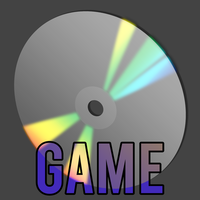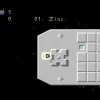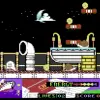More like this...
Theatre Europe_MRZ Commodore 64 game
Theatre Europe, a groundbreaking turn-based strategy game released in 1985 by Personal Software Services (PSS), plunged players into the harsh reality of a fictional war in Europe between NATO and the Warsaw Pact. Available on various home computers, including the Commodore 64, ZX Spectrum, Amstrad CPC, and Atari 8-bit, it marked the fifth installment in the esteemed Strategic Wargames series.
The game's narrative unfolds amidst the grim specter of nuclear conflict, where both sides engage in conventional warfare while wielding devastating nuclear and chemical weapons. The development team, including Alan Steel, Sean Pearce, and David Bolton, drew on real-world military statistics from the Ministry of Defence and the Soviet embassy in London to create an immersive and plausible gaming experience. Theatre Europe's objective was to fight battles across continental Europe, all while striving to prevent a catastrophic global nuclear holocaust. The inclusion of a unique interactive phone feature, requiring players to call a dedicated number for a nuclear strike authorization code, added a distinctive layer of realism.
Despite its innovative approach, Theatre Europe faced criticism from the Campaign for Nuclear Disarmament (CND) and The Sun newspaper. Retail chains even refused to sell the game upon release due to its controversial content. However, the game received acclaim for its accuracy, playability, and value for money, earning the "Best Strategy Game" award at the 1985 Golden Joystick Awards and a nomination for "Game of the Year."
The gameplay of Theatre Europe revolves around turn-based strategy, offering players the choice between controlling NATO or Warsaw Pact forces. A detailed map of Europe and western Russia becomes the focal point, featuring accurate terrain and military forces. The game incorporates an arcade sequence where players shoot down enemy units to influence combat outcomes, a feature that could be toggled based on player preference.
The JUNE review of Theatre Europe highlights its unique and sobering atmosphere. The game begins with the iconic Lennon/McCartney song "Give Peace a Chance," creating a poignant backdrop. Players make critical decisions, including selecting difficulty levels, choosing between NATO and the Warsaw Pact, and deciding whether to include arcade sequences. The detailed map, showcasing mountain ranges, capital cities, and military forces, sets the stage for strategic planning.
The gameplay involves various phases, including movement, attack, and combat resolution. The arcade sequences add an action-packed element, and the outcome of battles affects subsequent rounds. Players must rebuild units by allocating armament supplies and air support strategically. The air phase involves commanding aircraft for essential tasks such as counter air strikes, reconnaissance, and interdiction.
Notably, Theatre Europe allows players to request chemical and nuclear tactical strikes against the enemy. The game introduces special units for the Warsaw Pact, such as the 1st Airborne Army and the 1st Amphibious Army, providing unique strategic advantages.
In summary, Theatre Europe's integration of realism, strategy, and controversial content established it as a noteworthy entry in the war gaming genre. The inclusion of nuclear warfare and the interactive phone feature generated both criticism and acclaim. PSS followed up with a 16-bit successor, Conflict: Europe, in 1989. The game's enduring impact is evident in its recognition at the Golden Joystick Awards and its lasting influence on the war gaming landscape.
Game category: Commodore 64 games
Recently played




Comments